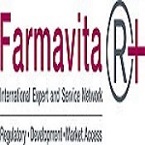Sessions & Tracks
Track 1- Midwifery
Midwifery is a healthcare profession that focuses on pregnancy, childbirth, and the postpartum period, along with the sexual and reproductive health of women throughout their lives. Midwives provide care and support to women during labor and delivery, as well as after birth, promoting natural childbirth and minimizing medical interventions. Their role can include: Prenatal Care, Labor and Delivery, Postpartum Care, Women's Health. Midwives can work in various settings such as hospitals, birthing centers, clinics, and home births. They often collaborate with obstetricians and other healthcare professionals to ensure comprehensive care.
Track 2-Gynecology
Gynecology is a branch of medicine that focuses on the health of the female reproductive system, including the uterus, ovaries, fallopian tubes, and breasts. Gynecologists are medical doctors who specialize in diagnosing and treating conditions related to women's reproductive health.
Their role includes:
-
Preventive Care: Conducting routine exams such as Pap smears, breast exams, and pelvic exams to detect early signs of health issues.
-
Diagnosis and Treatment: Managing conditions like menstrual disorders, endometriosis, polycystic ovary syndrome (PCOS), fibroids, and pelvic pain.
-
Reproductive Health: Providing family planning services, contraception counseling, and managing infertility issues.
-
Pregnancy and Childbirth: Offering prenatal care, monitoring the health of the mother and fetus, and managing labor and delivery, often in collaboration with obstetricians.
-
Menopause Management: Helping women manage symptoms of menopause through hormone replacement therapy, lifestyle changes, and other treatments.
-
Surgery: Performing surgical procedures such as hysterectomies, removal of ovarian cysts, and laparoscopic surgeries for various gynecological conditions.
Gynecologists play a crucial role in maintaining and promoting women's health through various stages of life, from adolescence through menopause and beyond. They often work closely with other healthcare providers to offer comprehensive care and support.
Track 3 - Maternal health and Child health
Maternal health refers to the health of women during pregnancy, childbirth, and the postpartum period. It encompasses the health care dimensions of preconception, prenatal, and postnatal care in order to ensure a positive and fulfilling experience in most cases and reduce maternal morbidity and mortality in cases of complications. Improving maternal health is a global priority, as it directly impacts the well-being of both mothers and their children. Efforts to improve maternal health include promoting access to quality healthcare, providing education and support, and addressing social determinants of health such as poverty and education.
Child health encompasses the physical, mental, and social well-being of children from infancy through adolescence. Ensuring child health involves preventive care, timely medical intervention, and promoting healthy lifestyles to support growth and development.
Track 4 - Women Health
Women’s health encompasses the physical, mental, and social well-being of women throughout their lives. It includes a wide range of health issues unique to women, as well as conditions that affect both men and women but manifest differently in women. Key aspects of women’s health include:
Reproductive Health
-
Menstrual Health
-
Contraception and Family Planning
-
Sexual Health
-
Pregnancy and Childbirth
-
Infertility and Assisted Reproduction
Gynecological Health
-
Routine Exams
-
Gynecological Disorders
-
Menopause and Perimenopause
Overall, women’s health is a critical component of public health, and addressing the unique health needs of women at different stages of life is essential for the well-being of individuals, families, and communities.
Track 5- Reproductive and Sexual Health
Reproductive and sexual health is a crucial aspect of overall health and well-being. It encompasses a wide range of issues related to the reproductive system, sexual activity, and sexual well-being. This includes the prevention and treatment of reproductive health issues, ensuring access to safe and effective contraception, promoting healthy sexual relationships, and supporting individuals' rights to make informed decisions about their sexual and reproductive lives.
Reproductive Health
-
Contraception and Family Planning
-
Preconception Care
-
Fertility and Infertility
-
Pregnancy and Childbirth
-
Gynecological Health
Sexual Health
-
Sexually Transmitted Infections (STIs)
-
Sexual Function and Well-being
-
Healthy Sexual Relationships
-
LGBTQ+ Health
Overall, reproductive and sexual health is a fundamental aspect of overall health, and addressing these issues is essential for the well-being of individuals and communities.
Track 6- Pregnancy and its complications
Pregnancy is a complex physiological process that can sometimes be accompanied by complications affecting the health of both the mother and the fetus. Understanding these potential complications and their management is crucial for ensuring the best possible outcomes. Here are some common pregnancy complications
1.Gestational Diabetes
Description: A form of diabetes that develops during pregnancy and usually goes away after giving birth.
Risk Factors: Obesity, history of gestational diabetes, family history of diabetes.
Management: Monitoring blood sugar levels, dietary changes, exercise, and sometimes insulin therapy.
2. Preeclampsia
Description: A condition characterized by high blood pressure and often protein in the urine. It can develop after 20 weeks of pregnancy.
Symptoms: Severe headaches, vision changes, upper abdominal pain, nausea, swelling of hands and face.
Management: Regular prenatal check-ups, blood pressure monitoring, medications, and in severe cases, early delivery.
3. Preterm Labor
Description: Labor that begins before 37 weeks of pregnancy.
Risk Factors: Previous preterm birth, multiple pregnancies, certain infections, and chronic conditions like hypertension.
Management: Medications to stop labor, corticosteroids to speed up fetal lung development, and hospitalization.
4. Placenta Previa
Description: The placenta partially or completely covers the cervix.
Symptoms: Painless vaginal bleeding during the second or third trimester.
Management: Monitoring, avoiding activities that can trigger bleeding, bed rest, and sometimes cesarean delivery.
Early detection and proper management of these complications are crucial for the health and well-being of both mother and baby.
Track 7- Infertility
Infertility is defined as the inability to conceive after one year of regular, unprotected intercourse. It can affect both men and women and may be due to a variety of factors. Here's an overview of infertility, its causes, and treatment options
-
Causes of Infertility
-
Female Infertility
Ovulation Disorders: Conditions like polycystic ovary syndrome (PCOS) or thyroid disorders that affect hormone levels.
Fallopian Tube Blockage: Blocked or damaged fallopian tubes prevent the egg from meeting the sperm.
Endometriosis: Tissue similar to the uterine lining grows outside the uterus, potentially causing pain and blockages.
Male Infertility
Sperm Production Issues: Low sperm count or poor sperm quality.
Sperm Delivery Problems: Blockages or issues with the delivery system of sperm.
Hormonal Imbalances: Problems with hormones that affect sperm production.
Treatment Options
For Women
Medications: Hormonal treatments to regulate ovulation or address other issues.
Surgery: To correct anatomical problems or remove blockages.
Assisted Reproductive Technologies (ART)
For Men:
Medications: To address hormonal imbalances or infections.
Surgery: To repair blockages or varicoceles (enlarged veins in the scrotum).
ART: Similar to treatments for women, including IUI and IVF, sometimes with sperm retrieval techniques.
Infertility can be a challenging journey, and treatment plans are often personalized based on individual needs and circumstances. Consulting with a fertility specialist can help in understanding the best approach for each unique situation.
Track 8- Obstetrics
Obstetrics is the branch of medicine concerned with pregnancy, childbirth, and the postpartum period. It focuses on the health of the mother and baby throughout the perinatal period. Obstetric care aims to ensure the health and safety of both the mother and the baby throughout pregnancy, childbirth, and the early postpartum period. It involves a combination of regular monitoring, timely intervention, and support to manage and prevent complications.
Track 9- Prenatal care
Prenatal care is essential for ensuring the health and well-being of both the mother and the developing fetus throughout pregnancy. It involves a series of routine check-ups, tests, and educational components designed to monitor and support a healthy pregnancy.
Importance of Prenatal Care:
Early Detection: Identifies potential issues early, allowing for timely intervention.
Health Optimization: Ensures that both mother and baby are in the best possible health throughout pregnancy.
Preparation: Helps parents prepare for childbirth and parenthood by providing knowledge and resources.
Regular and comprehensive prenatal care is crucial for a healthy pregnancy and successful delivery. It allows healthcare providers to monitor progress, detect any potential problems, and provide support to ensure the best outcomes for both the mother and baby.
Track 10- Postnatal care
Postnatal care, also known as postpartum care, is the medical care and support provided to a mother and her baby following childbirth. It focuses on the physical, emotional, and psychological recovery of the mother and the health and well-being of the newborn.
Importance of Postnatal Care:
Recovery: Ensures the mother’s physical and emotional recovery is progressing well.
Health of the Newborn: Monitors and supports the baby’s growth and development.
Parental Readiness: Helps parents adjust to their new role and address any challenges they may face.
Postnatal care is crucial for the health and well-being of both the mother and the baby. It provides an opportunity for healthcare providers to address any issues, offer support, and ensure a positive transition into parenthood.
Track 11 - Midwifery in Pediatrics
Midwifery, traditionally associated with childbirth and prenatal care, can also play a role in pediatric care, especially in the context of newborn and early infant care. While midwives primarily focus on childbirth and maternal health, their role in pediatrics can be significant, particularly in settings where they provide comprehensive care to families.
Roles of Midwives in Pediatrics
1. Newborn Care
2. Postpartum Care
3. Emotional and Practical Support
4. Health Promotion and Preventive Care
Midwifery’s role in pediatrics, particularly in the immediate postnatal period, is essential for ensuring the health and well-being of both mother and baby. Their comprehensive approach provides valuable support and education, facilitating a smoother transition into parenthood.
Track 12-Neonatology
Neonatology is a subspecialty of pediatrics focused on the care of newborn infants, particularly those who are ill or born prematurely. Neonatologists are specialized doctors who manage complex and high-risk conditions in neonates, often working in neonatal intensive care units (NICUs). Neonatology is a vital field that focuses on the medical care of newborns who need intensive or specialized treatment. Neonatologists work in NICUs and other settings to provide comprehensive care, support families, and ensure the best possible outcomes for their patients.
Importance of Neonatology
Critical Care: Neonatologists play a crucial role in providing life-saving care to the most vulnerable infants.
Prevention of Complications: Their expertise helps prevent and manage complications associated with prematurity and congenital conditions.
Improving Outcomes: Through advanced medical interventions and developmental care, neonatologists work to improve the long-term health and development of newborns.
Track 13- Perinatology
Perinatology, also known as maternal-fetal medicine (MFM), is a subspecialty of obstetrics focused on the care of high-risk pregnancies and the management of complex maternal and fetal conditions. Perinatologists work closely with obstetricians, neonatologists, and other specialists to provide comprehensive care to both the mother and the unborn baby. Perinatology plays a critical role in the management of high-risk pregnancies, offering specialized care to address complex maternal and fetal conditions. Perinatologists work as part of a multidisciplinary team to provide comprehensive and coordinated care, aiming to achieve the best possible outcomes for both mother and baby.
Track 14- Women Oncology
Women’s oncology focuses on the diagnosis, treatment, and management of cancers that specifically affect women. This specialty encompasses a range of cancers, including those of the reproductive organs, breasts, and other areas unique to female physiology. Women’s oncology is dedicated to the comprehensive care of women with cancer, focusing on the unique aspects of female cancers and providing specialized, compassionate care to improve outcomes and support patients throughout their journey.
Track 15 - Reproductive Medicine
Reproductive medicine is a branch of medicine that focuses on diagnosing and treating conditions related to human reproduction and infertility. It encompasses a range of medical, surgical, and technological interventions aimed at improving reproductive health and assisting individuals and couples in achieving their reproductive goals. Reproductive medicine is dedicated to improving reproductive health and assisting individuals and couples in achieving their goals of parenthood through advanced medical care, technology, and support.
Track 16 - Gynecologic Surgeries
Gynecologic surgeries encompass a range of surgical procedures performed on the female reproductive system to diagnose, treat, or manage various gynecologic conditions. These surgeries can be performed for both benign and malignant conditions, and they may involve minimally invasive techniques or more traditional open surgeries.
Types of Gynecologic Surgeries
-
Cervical Cryosurgery
-
Colposcopy
-
Dilation and Curettage
-
Hysteroscopy
-
LEEP Procedure
-
Pelvic Laparoscopy
-
Robotic-Assisted Surgery
Common gynecological procedures include cervical cryosurgery, colposcopy, D&C (dilation and curettage), hysteroscopy, LEEP (loop electrosurgical excision procedure), and pelvic laparoscopy. These procedures help healthcare providers examine the uterus, cervix, and vagina more closely and obtain biopsy samples. Additionally, some of these procedures can also be used to treat specific conditions. Gynecologic surgeries play a crucial role in managing and treating conditions affecting the female reproductive system, with a focus on improving patient outcomes and quality of life.
Track 17 - Family Planning
Family planning involves strategies and methods used to control the timing and spacing of pregnancies, as well as to achieve or prevent conception. It encompasses a range of services and practices designed to support individuals and couples in making informed decisions about their reproductive health.
Key Aspects of Family Planning
1. Contraceptive Methods
Birth Control Pills: Oral contraceptives that prevent ovulation and thicken cervical mucus.
Hormonal Patches: Adhesive patches that release hormones to prevent pregnancy.
Hormonal Injections: Injectable hormones that provide contraception for several months.
Implants: Small rods placed under the skin that release hormones to prevent pregnancy for several years.
Barrier Methods:
Condoms: Worn by either partner to prevent sperm from entering the uterus.
Diaphragms and Cervical Caps: Inserted into the vagina to cover the cervix and block sperm entry.
Intrauterine Devices (IUDs):
Copper IUDs: Non-hormonal devices that create an environment hostile to sperm.
Hormonal IUDs: Release hormones to prevent pregnancy and reduce menstrual bleeding.
2. Pregnancy Planning
Timing and Spacing: Advising on the optimal timing and spacing between pregnancies to ensure the health of both the mother and the baby.
Medical Evaluation: Assessing any potential health risks and providing recommendations for a healthy pregnancy.
3. Fertility Treatments
Assisted Reproductive Technologies (ART): Techniques such as IVF (in vitro fertilization) and IUI (intrauterine insemination) for individuals and couples experiencing difficulty conceiving.
Fertility Medications: Hormonal treatments to stimulate ovulation and improve fertility.
4. Emergency Contraception
Emergency Contraceptive Pills (ECPs): Pills taken after unprotected intercourse to prevent pregnancy.
Copper IUDs: Can be used as an emergency contraceptive if inserted within a few days after unprotected sex.
Family planning is a crucial aspect of reproductive health, offering various methods and resources to support individuals and couples in achieving their family goals while ensuring their overall well-being.
Track 18- Preconception & Care
Preconception care is a proactive approach to ensuring optimal health before pregnancy begins. It involves evaluating and managing health conditions, lifestyle factors, and other aspects of well-being to improve the chances of a healthy pregnancy and a healthy baby. Preconception care is a crucial step in preparing for a healthy pregnancy. By addressing various aspects of health and well-being before conception, individuals and couples can enhance their chances of a successful and healthy pregnancy, ultimately benefiting both themselves and their future child.
Track 19- Midwifery Nursing
Midwifery nursing is a specialized field within nursing focused on providing comprehensive care to pregnant women, including support during labor, delivery, and the postpartum period. Midwives, or certified nurse-midwives (CNMs), combine advanced nursing skills with specialized training in midwifery to offer holistic care that emphasizes the natural process of childbirth while ensuring safety for both mother and baby. Midwifery nursing plays a vital role in providing compassionate, comprehensive care to women throughout their pregnancy journey. Midwives offer personalized support that honors the natural aspects of childbirth while addressing any medical needs, ensuring a safe and positive experience for both mother and baby.
Track 20: Gynecologic cancers
Gynecologic cancer refers to cancers that originate in a woman's reproductive organs. The five main types of gynecologic cancer are cervical, ovarian, uterine, vaginal, and vulvar cancers. Collectively, these are known as gynecologic cancers. Additionally, there is a rare sixth type called fallopian tube cancer.
Each of these cancers begins in different areas within the pelvis, which is located below the stomach and between the hip bones. These cancers have distinct signs, symptoms, risk factors, and prevention strategies. While all women are at risk for gynecologic cancers, the risk increases with age. Early detection of these cancers significantly improves the effectiveness of treatment. Gynecologic cancers require a multidisciplinary approach for effective management, involving gynecologic oncologists, surgeons, radiologists, and other healthcare professionals to provide optimal care and support.

















